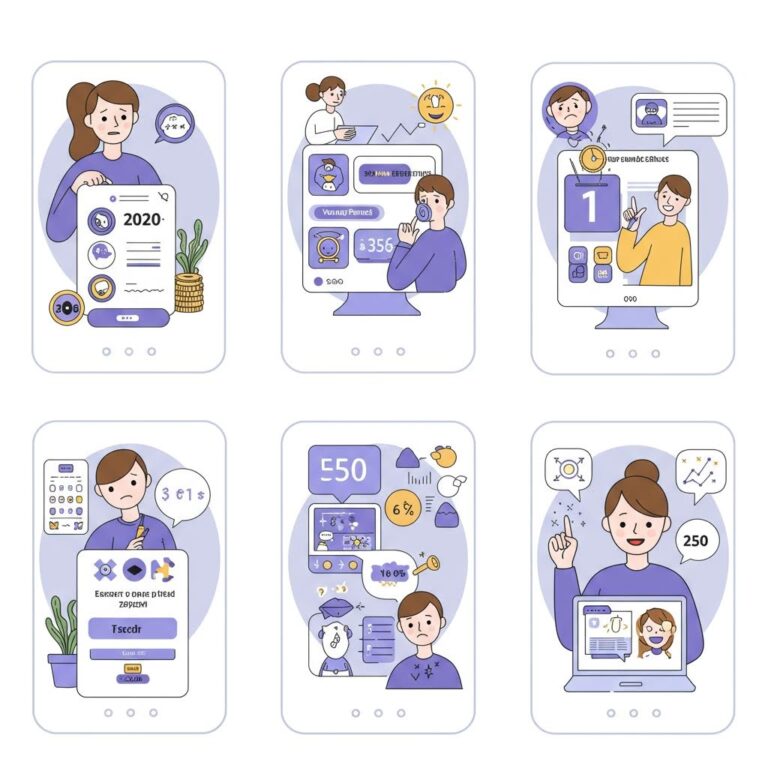Why Most Gambling Recovery Starts Only After Hitting Rock Bottom
Most often, people start to recover from gambling only after they hit the lowest point. This happens due to deep mind and brain factors. The brain’s reward system teams up with denial, making them blind to their growing gambling issues.
The Mind Behind Gambling Issues
Addictive habits show up as self-lies. People who gamble a lot keep telling themselves their losses are not bad, keep secrets, and think they have things under control – even as their lives fall apart. The mind’s need for gambling grows so strong that it comes before friends, jobs, and money safety.
The Role of Denial
Wrong beliefs fuel the gambling issue. The brain starts working differently, messing up how they make choices and see risks. This deep-rooted problem stops people from seeing how bad their gambling problem is until something very bad happens. 온카스터디
What Makes People Seek Help
Common low points include:
- Losing all money and going broke
- Legal trouble
- Lost relationships
- Job loss
- Being all alone
When things get too hard to bear, denial breaks, pushing people to face the truth about their gambling issue. Knowing this helps us help them earlier.
Such tough times often push people to get professional help and start recovery programs which begin their healing from gambling.
The Power of Denial
Understanding Denial in Gambling Issues
Denial’s Strong Hold
Denial acts as a strong shield, keeping the gambling problem safe while stopping recovery.
This guard shows up in ways like seeing losses as “almost wins” and believing the next bet will fix money problems.
The mind’s guard makes a complex web of self-lies that keep up the gambling habits.
How Denial Shows Up
Addictive actions appear as denial, like:
- Hiding gambling from others
- Downplaying money lost
- Feeling in control of betting
- Justifying ongoing gambling despite bad outcomes
Breaking the Denial Barrier
The hold of denial is one of the hardest parts of stopping gambling. Even with clear signs like:
- Overdraft fees going up
- Credit cards maxed out
- Building up debt
- Strained relationships
People stick to their defensive ways until life-changing events happen. Such crisis points usually are:
- Legal trouble
- Family stepping in
- Going broke
- Ultimatums from loved ones
When these serious moments happen, denial starts to crack, letting them see the real impact of their addiction and opening the path to real recovery actions.
Money Triggers
Money Crises in Gambling Issues
Seeing Money Crisis Triggers
Losing all money often pushes people to see their gambling issue.
Facing maxed-out cards, no savings, and big debts makes denial hard to keep up.
It becomes clear through unpaid bills and secret bank statements found by family.
Signs of Money Trouble
Key Money Signs
- Bounced checks and low funds
- Losing assets and property
- Mortgages under hard conditions
- Used up retirement funds
- Unpaid loans from family
- Secret gambling debts
Money Impact on Life
The money crisis shows differently in people.
Some face immediate results through bank overdrafts and not paying back loans, while others slowly lose their money safety through growing debt and lost assets.
These growing pressures eventually break the shield of denial.
Recovery and Money Fixing
When a money crisis happens, getting professional help is key.
Recovery help is there to deal with both the mind part of addiction and its money mess.
The fix often begins at this low point where money truth pushes them to admit the problem and act.
Help options work on plans for:
- Handling debt
- Keeping assets safe
- Building money health
- Dealing with the addiction
- Fixing family money issues
Experts mix addiction recovery with money advice to make lasting fixes for long-term healing.
Lost Relationships From Gambling
The Hit on Close Relationships from Gambling
Getting How Gambling Breaks Relationships
Problem gambling breaks close relationships, causing deep losses as the issue gets worse.
Family ties and close partnerships break from harmful habits that slowly wreck trust and steadiness.
Addicted actions usually show up as lies, like lying about where they are, taking money without asking, and not keeping promises.
The Steps of Losing Relationships
Loved ones go through clear stages when dealing with a gambling person:
- First worry and concern
- Growing anger and stress
- Trying to help and step in
- Pulling away or leaving
Family and friends eventually set strong limits to save themselves from the money mess and heartache that comes with gambling issues.
Even the most caring supporters often reach a breaking point, leading to cutting ties.
Recovery and Looking at Relationships
The full size of relationship harm often shows in recovery times. Addicts face hard truths:
- Empty spots at family events
- No more talks
- Broke support systems
- Lost close connections
While fixing relationships can happen through dedicated recovery work and systematic making it right, some bonds are too hurt to fix.
This tough truth acts as a strong push to keep up recovery and stop falling back.
Making a New Path
Winning at recovery often hangs on:
- Seeing lost relationships
- Using good ways to cope
- Making new friends and support
- Keeping up with recovery steps
Legal Issues as a Wake-Up Call
Legal Issues From Gambling: A Key Wake-Up Call
Understanding Legal Hits from Problem Gambling
Legal trouble often stands as the big wake-up call for people with gambling issues, making them face how bad it is.
When facing charges for crimes like fraud or theft to support gambling, the reality of addiction is clear. Many say that legal steps pushed them to start recovering.
Types of Legal Trouble and What They Mean
The range of gambling-linked legal problems goes from:
- Lesser crimes
- Big charges
- Money fraud
- Losing work permits
- Needing to pay back big money
These can lead to big jail time, large fines, and long-term job issues. Legal costs and payouts ordered by court add to the money mess from gambling losses.
Ways to Recover Through Legal Ways
Dealing with the law often opens set ways to get better. Courts now see how addiction plays into gambling crimes, allowing for:
- Adding treatment plans to sentencing
- Different sentencing focused on getting better
- Working together on plea deals that include treatment
- Watched recovery plans
While legal issues are big hurdles, they often start the stop to bad gambling habits and start lasting recovery.
Missed Early Signs
Seeing Early Warning Signs of Gambling Issues
Key Red Flags in Problem Gambling
The path to gambling issues often shows through many warning signs that, if seen early, can stop the problem from getting worse.
Behavioral signs slowly show up, making them easy to miss or make excuses for.
Knowing these early signs is key for stepping in and fixing things.
Warning Signs to Watch
- Money Warning Signs
- Growing credit card debt
- Using up savings
- Borrowing money to gamble
- Trying to win back losses with bigger bets
- Changes in Actions
- Pulling away from friends
- Lying about gambling
- Not sleeping right
- Doing worse at work
- Getting mad when not gambling
The Need for Early Help
Problem gambling builds up slowly, making it important to catch it early for the best fix.
When signs show up, acting fast can stop big problems like:
- Going broke
- Legal troubles
- Ruined relationships
- Job issues
- Mental health problems
Don’t wait to hit rock bottom before getting help. Each missed sign is a lost chance to get better.
Help options work best when used early in gambling troubles.
Taking Steps
Help is ready through:
- Gambling help lines
- Licensed helpers
- Support groups
- Money advisors
- Mind health experts
Seeing these signs and getting help fast can stop gambling problems from getting worse and make recovery smoother.
Steps to Real Recovery
Getting the Recovery Road
Recovering from gambling issues means admitting change is needed and possible.
Choosing to get help is a key moment in the healing trip, joining many who’ve beaten gambling needs and fixed their lives.
Must-Do Recovery Steps
Handling Money Right
Setting strict money rules is core to recovery winning.
This means giving money control to a trusted family member while learning good money habits.
Stopping Gambling Access
Taking firm steps to cut gambling access includes:
- Blocking oneself from all gambling places
- Taking gambling apps off phones
- Stopping access to online gambling sites
Support and Therapy
Professional help choices, especially Cognitive Behavioral Therapy (CBT), are key in:
- Finding out what makes you want to gamble
- Creating ways to cope Secret Gambling Habits That Slowly Destroy Relationships
- Changing bad thoughts
- Building strength against gambling needs
Community Help and New Life Choices
Meeting others in Gamblers Anonymous gives needed friend support and shared experiences.
Making lasting changes needs:
- Building a strong friend group
- Finding new fun things and interests
- Setting new daily plans
- Learning good stress ways
Recovery wins rely on making a full life change that tackles the deep causes of addiction, not just willpower.

